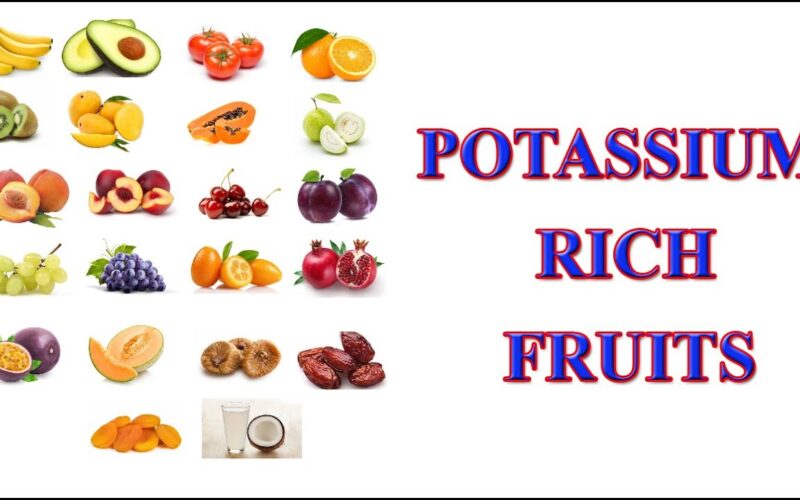Want to boost your potassium intake? Fruits are a tasty way to do it! Many fruits are packed with potassium , including avocados, guavas, bananas, and kiwifruit.
This key mineral helps your body in lots of ways, from keeping your heart healthy to helping your muscles work right.
You might be surprised by some of the fruits that are high in potassium.
Did you know that half an avocado has more potassium than a banana ? Or that dried fruits like raisins are potassium powerhouses? Adding these fruits to your diet can be an easy and yummy way to up your potassium game.
Let’s explore some of the best fruity sources of potassium and how you can enjoy them.
You’ll learn which fruits give you the biggest potassium bang for your buck and get ideas for fitting them into your meals and snacks.
Get ready to discover delicious ways to boost your health!
Bananas

Bananas are one of the most popular potassium-rich fruits . You might already know they’re a great source of this important mineral.
A medium-sized banana contains about 422 milligrams of potassium. That’s roughly 9% of the daily recommended intake for adults.
But did you know bananas offer more than just potassium? They’re also packed with:
- Vitamin C
- Fiber
- Magnesium
You can enjoy bananas in many ways. Eat them fresh as a quick snack, slice them onto your morning cereal, or blend them into smoothies.
For a tasty treat, try freezing peeled bananas. They make a great base for homemade “nice cream” – a healthier alternative to ice cream.
If you’re watching your potassium intake due to kidney issues, you might need to limit banana consumption. Always check with your doctor about the right amount for you.
Remember, while bananas are awesome, they’re not the only fruit high in potassium.
Avocados, guavas, and kiwifruit are also excellent sources. Mixing up your fruit choices ensures you get a variety of nutrients.
Oranges

Oranges are a tasty fruit that packs a potassium punch. You might be surprised to learn that these citrus fruits are high in potassium .
A medium-sized orange contains about 240 mg of potassium. That’s about 5% of your daily potassium needs in just one fruit!
Here’s a quick breakdown of the potassium content in oranges:
- Small orange: 180 mg
- Medium orange: 240 mg
- Large orange: 300 mg
You can easily add oranges to your diet. Try these ideas:
- Eat them as a snack
- Add slices to your salad
- Squeeze fresh orange juice
Oranges aren’t just good for potassium. They’re also packed with vitamin C, which helps your body absorb iron better.
Remember, eating whole oranges is better than drinking juice. Whole fruits have more fiber and make you feel fuller.
If you’re watching your potassium intake due to kidney issues, talk to your doctor about how many oranges you can safely eat.
Kiwis
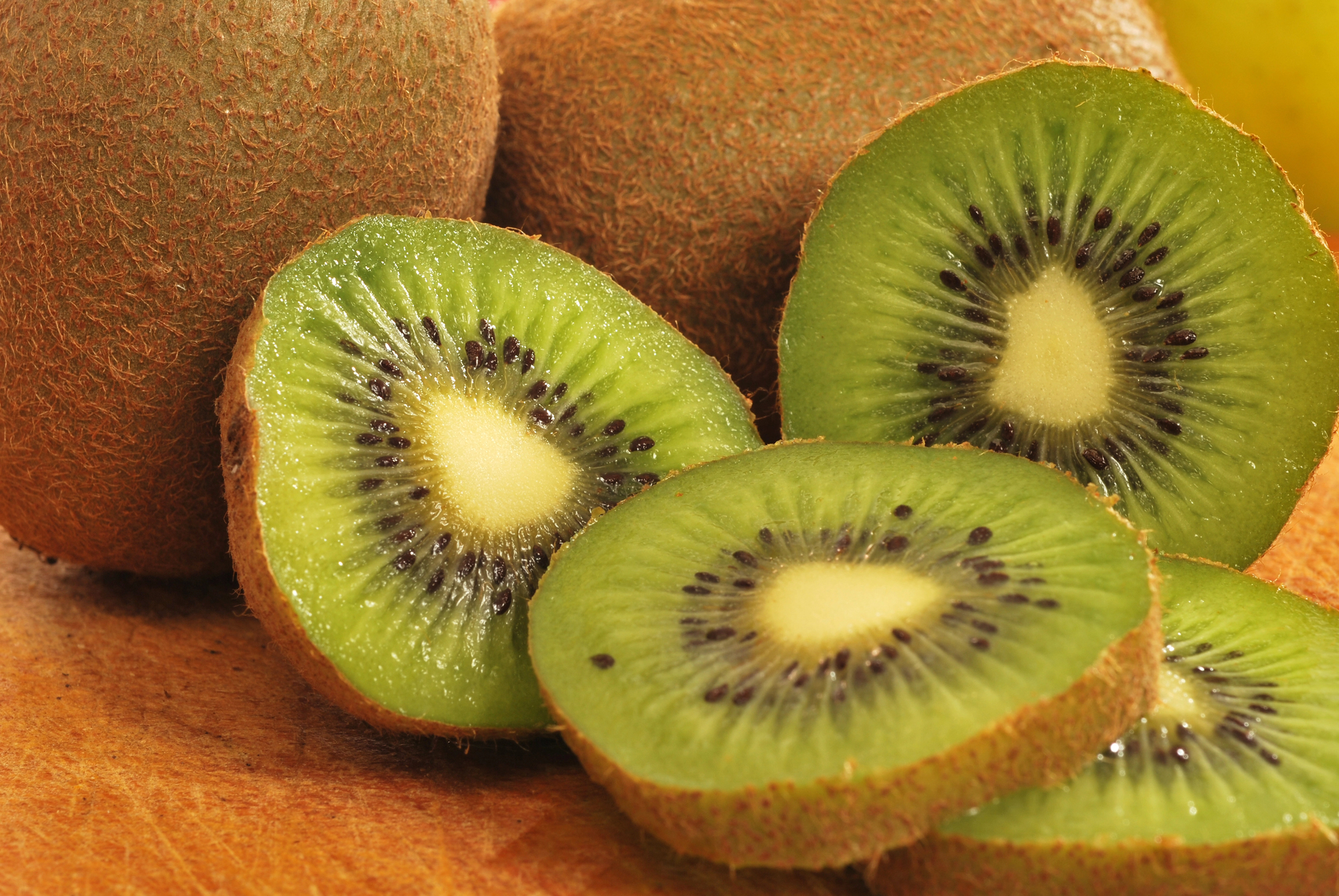
Kiwis are small fruits that pack a big nutritional punch. They’re not just tasty – they’re also high in potassium .
This makes them a great choice if you’re looking to boost your potassium intake.
Did you know that kiwis come in different colors? The green kiwis you’re probably used to seeing are great, but golden kiwis are even better for potassium. Golden kiwis have about 255 mg of potassium each .
Here’s a quick breakdown of what you’ll get in one medium-sized kiwi:
- Calories: 42
- Protein: 0.1g
- Carbohydrates: 10.1g
- Fat: 0.4g
But that’s not all! Kiwis are also packed with other good stuff. They’re rich in vitamin C, fiber, and copper . These nutrients can help keep your body healthy in many ways.
Eating kiwis regularly might even help your heart and digestion. They’re easy to add to your diet too.
Try slicing them into your morning cereal or adding them to a fruit salad. You can even eat them whole – the fuzzy skin is edible and full of nutrients!
Remember, variety is key in a healthy diet. While kiwis are great, it’s best to eat a mix of different fruits to get all the nutrients you need.
Cantaloupes
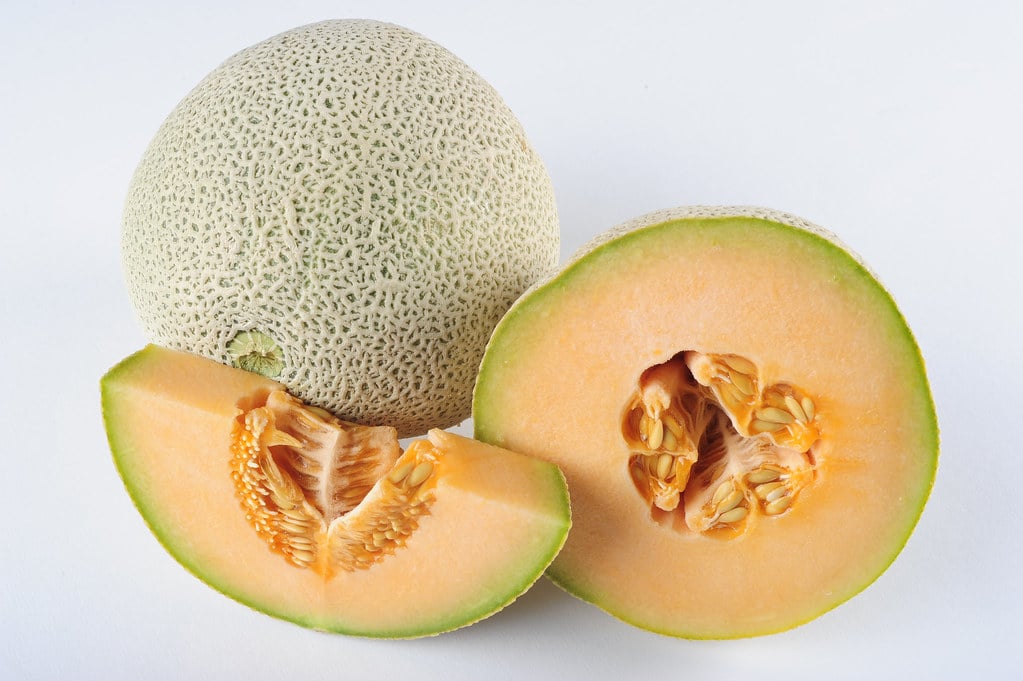
Cantaloupes are a tasty and refreshing fruit that can help you meet your daily potassium needs.
These juicy melons are packed with nutrients and offer several health benefits.
One cup of cantaloupe contains about 427 mg of potassium . That’s about 9% of the daily value for this essential mineral.
Eating cantaloupe can help you maintain healthy blood pressure levels.
Cantaloupes are also incredibly hydrating. They’re made up of about 90% water , making them a great snack to keep you hydrated on hot days.
Beyond potassium, cantaloupes are rich in other nutrients. They’re an excellent source of vitamin C, which supports your immune system.
You’ll also find vitamin A in cantaloupes, which is great for your eye health .
Here are some quick facts about cantaloupes:
- Low in calories
- High in antioxidants
- Good source of fiber
- Contains folate for healthy red blood cells
Try adding cantaloupe to your fruit salads or enjoying it as a refreshing snack.
It’s a delicious way to boost your potassium intake and support your overall health.
Apricots
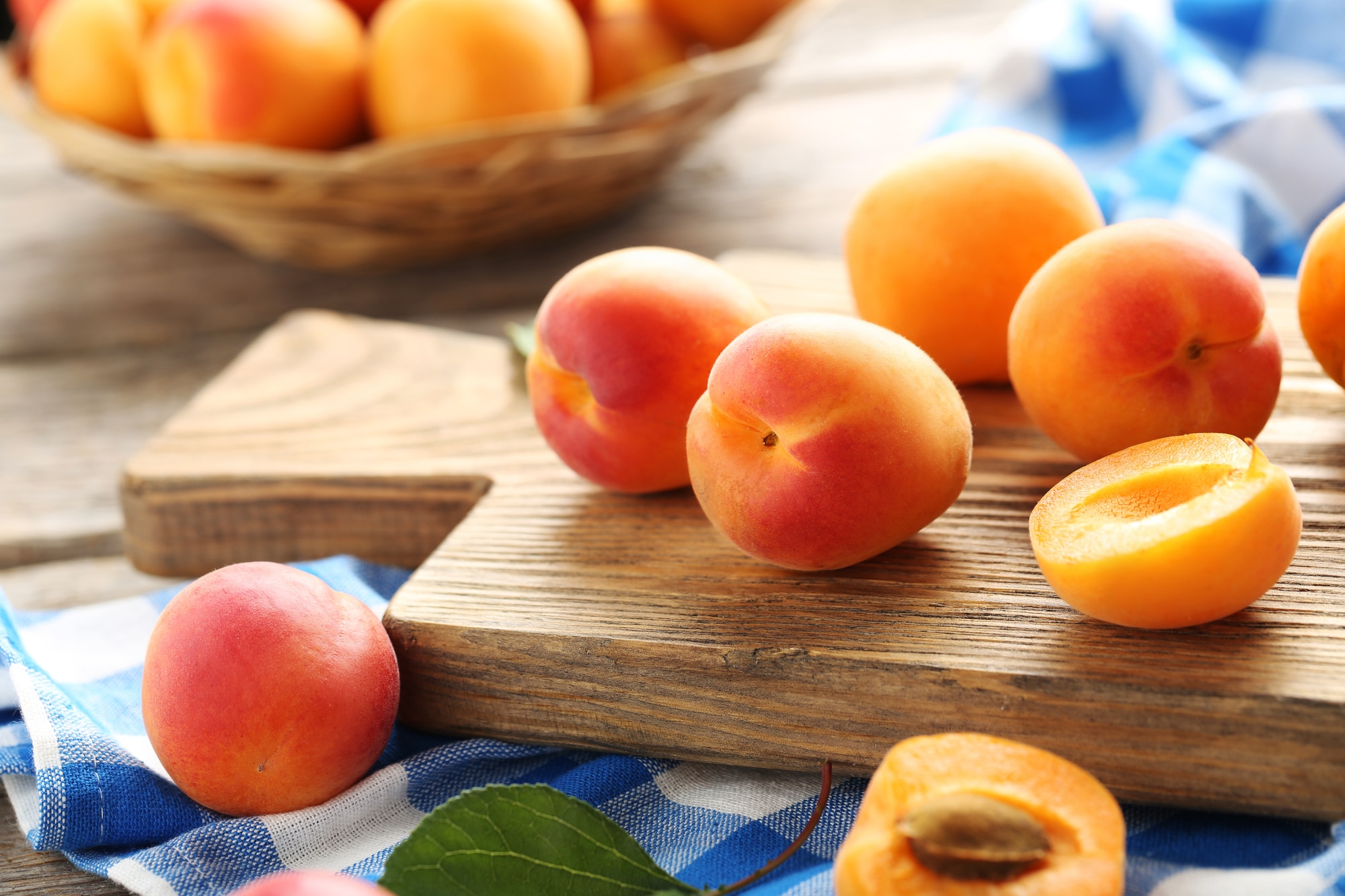
Apricots are a tasty fruit that pack a potassium punch. You might be surprised to learn that these small, orange fruits are a great source of this important mineral.
Fresh apricots contain a good amount of potassium, but dried apricots are even more concentrated .
A single cup of dried apricots provides a whopping 1,510 mg of potassium. That’s nearly a third of the daily recommended amount!
You can easily add apricots to your diet in many ways:
- Snack on fresh apricots
- Mix dried apricots into trail mix or granola
- Add sliced apricots to your morning cereal or oatmeal
- Use apricot jam on toast or in baked goods
Keep in mind that dried fruits are higher in sugar than fresh ones. If you’re watching your sugar intake, you might want to stick to fresh apricots.
Apricots aren’t just good for potassium. They’re also rich in vitamins A and C, fiber, and antioxidants. These nutrients can help support your overall health and well-being.
Next time you’re looking for a potassium-rich snack, reach for some apricots. Your body will thank you for the boost of this essential mineral!
Watermelons
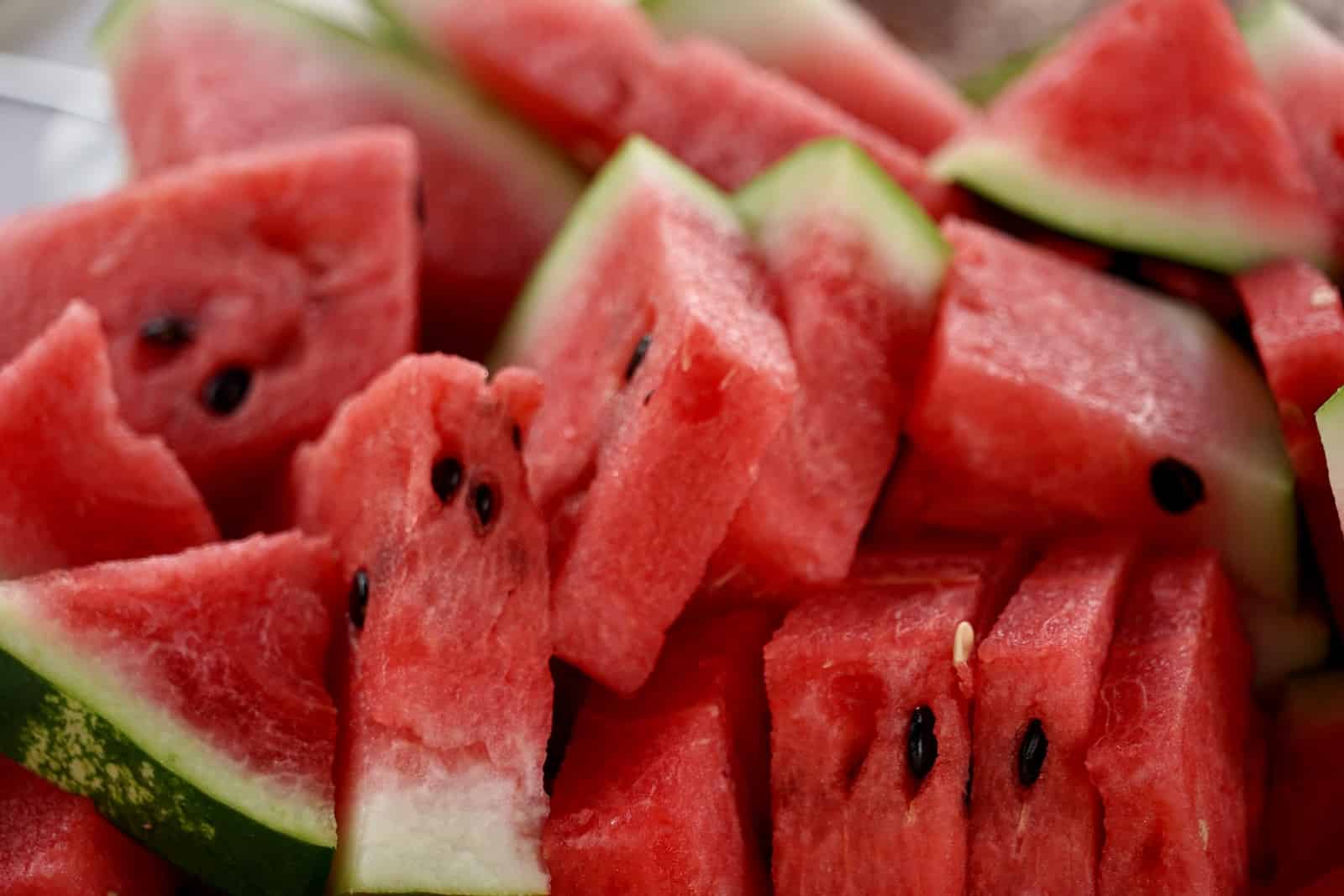
You might not think of watermelon as a potassium-rich fruit, but it’s actually a great source! This juicy summer favorite can help you meet your daily potassium needs.
A cup of diced watermelon contains about 170 mg of potassium . While that’s less than some other fruits, watermelon has a secret weapon – its high water content.
The water in watermelon helps your body absorb the potassium more easily. Plus, it’s super refreshing on a hot day!
Watermelon also has other health perks. It’s low in calories and packed with vitamins A and C. You’ll get a good dose of lycopene too, which is great for your heart.
Here’s a quick nutritional breakdown for 1 cup of diced watermelon:
- Calories: 46
- Potassium: 170 mg
- Vitamin C: 12.3 mg
- Vitamin A: 865 IU
- Lycopene: 6,890 micrograms
Try adding watermelon to your fruit salads or blending it into a smoothie. You can even grill it for a tasty summer treat!
Remember, two wedges of watermelon provide about 640 mg of potassium . That’s a big chunk of your daily needs in one delicious serving!
Avocados
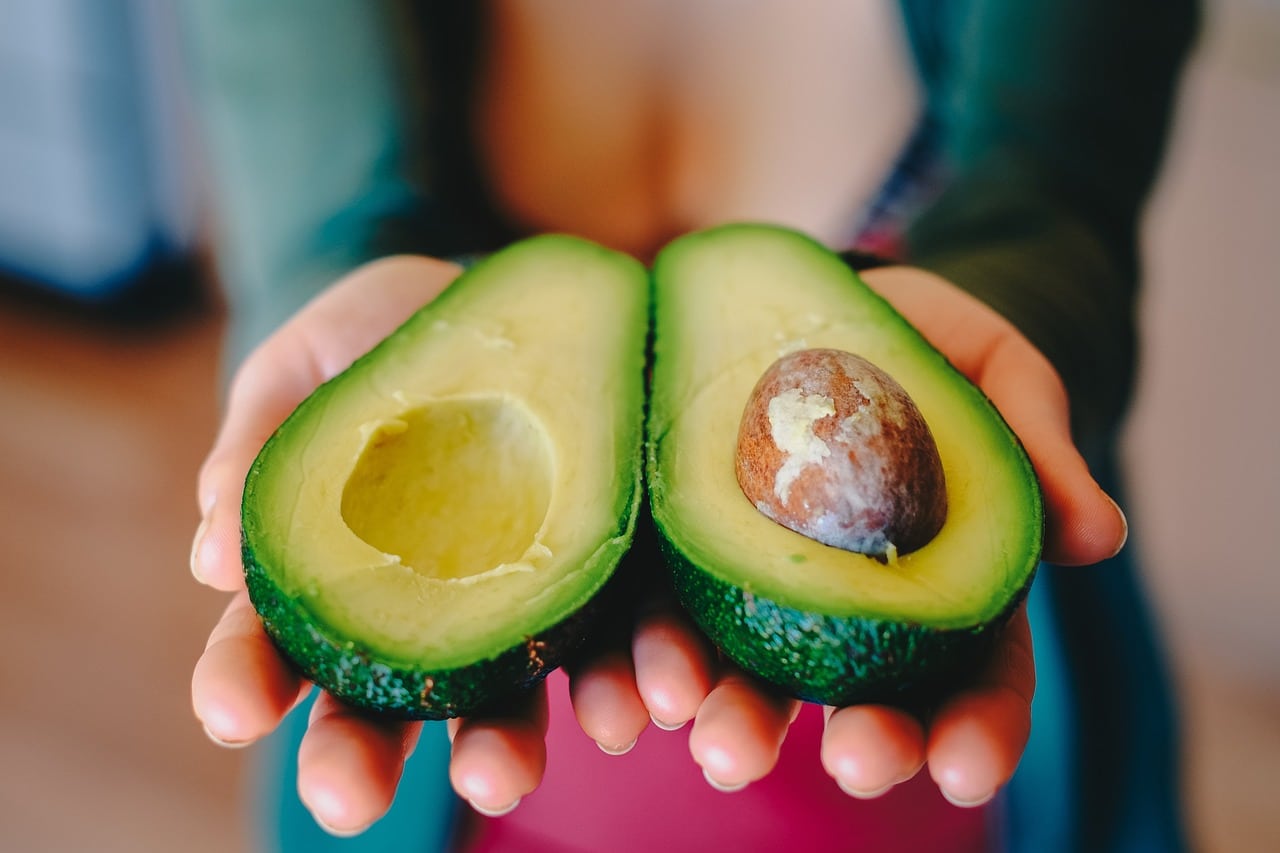
Did you know avocados are a great source of potassium? These creamy fruits pack quite a punch when it comes to this essential mineral.
Half an avocado contains about 364 mg of potassium . That’s a lot for such a small serving!
Avocados aren’t just good for potassium. They’re also full of healthy fats, vitamin K, and folate.
You can enjoy them in many ways:
- Spread on toast
- Added to salads
- Mixed into guacamole
- Blended in smoothies
When you eat avocados, you’re not just getting potassium. You’re also helping your body in other ways.
The fats in avocados can help you absorb nutrients from other foods.
Want to add more avocados to your diet? Try having half an avocado with your breakfast. Or, use it as a sandwich spread instead of mayo.
You’ll boost your potassium intake and add a creamy texture to your meals.
Remember, while avocados are healthy, they’re also high in calories. Enjoy them as part of a balanced diet for the best results.
Papayas
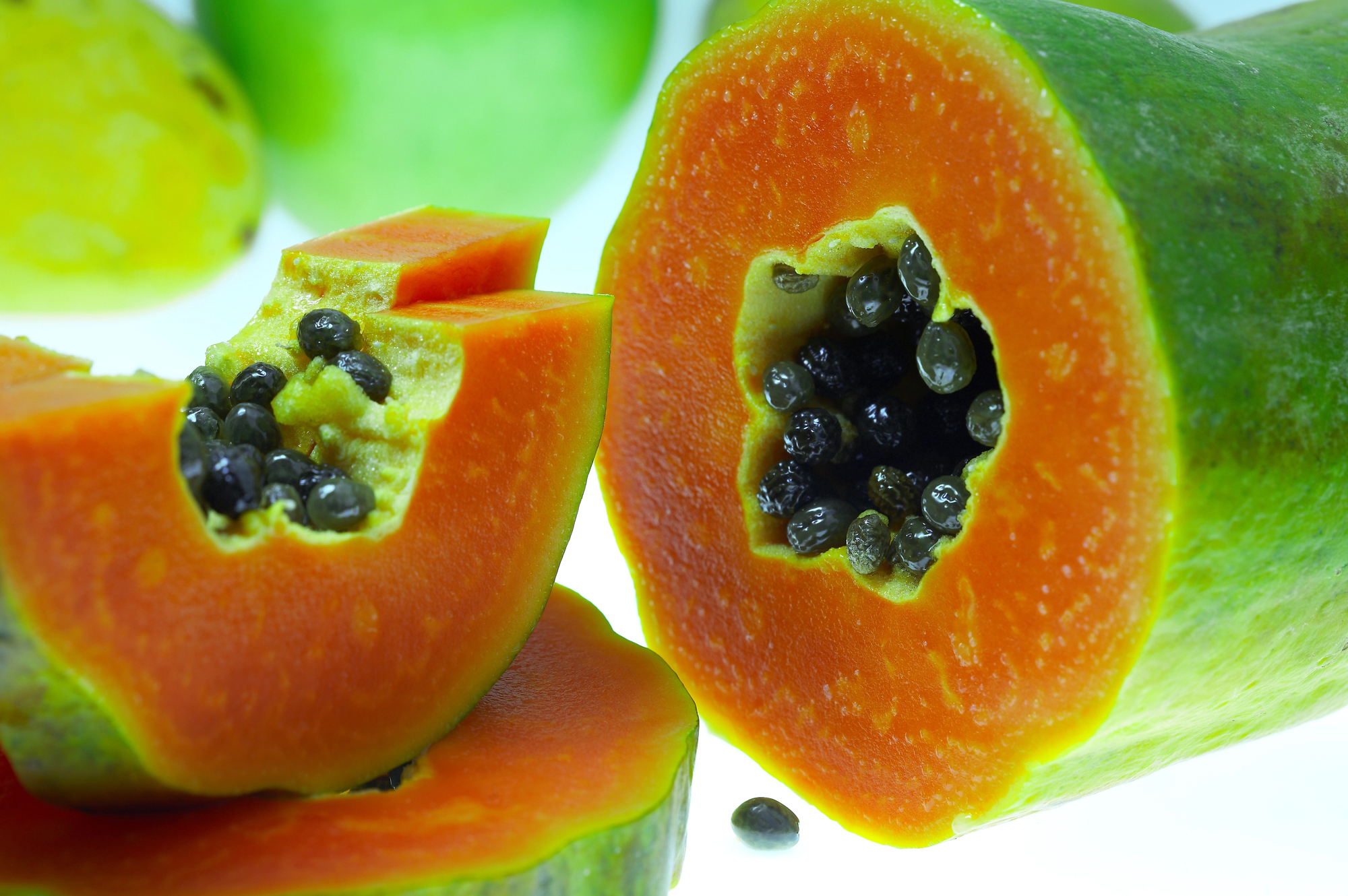
Papayas are a tasty tropical fruit that pack a potassium punch. You might be surprised to learn that papayas contain even more potassium than bananas!
A medium-sized papaya has about 390 mg of potassium . That’s nearly 10% of your daily recommended intake. Pretty impressive for a single fruit!
Papayas aren’t just good for potassium. They’re also loaded with other nutrients.
Here’s a quick breakdown of what you’ll get in a serving:
- High in vitamin C
- Good source of vitamin A
- Rich in fiber
- Low in calories
You can enjoy papaya in many ways. Try it fresh, add it to smoothies, or use it in salads. The sweet taste and soft texture make it a hit in fruit salads.
When picking a papaya, look for one that’s mostly yellow with a bit of green.
It should give slightly when you press it. If it’s too soft, it might be overripe.
Remember, papayas aren’t just delicious – they’re packed with health benefits .
They may help reduce the risk of heart disease and diabetes. Plus, they’re great for your digestion.
So next time you’re looking for a potassium-rich snack, why not reach for a papaya? Your body will thank you!
Mangos
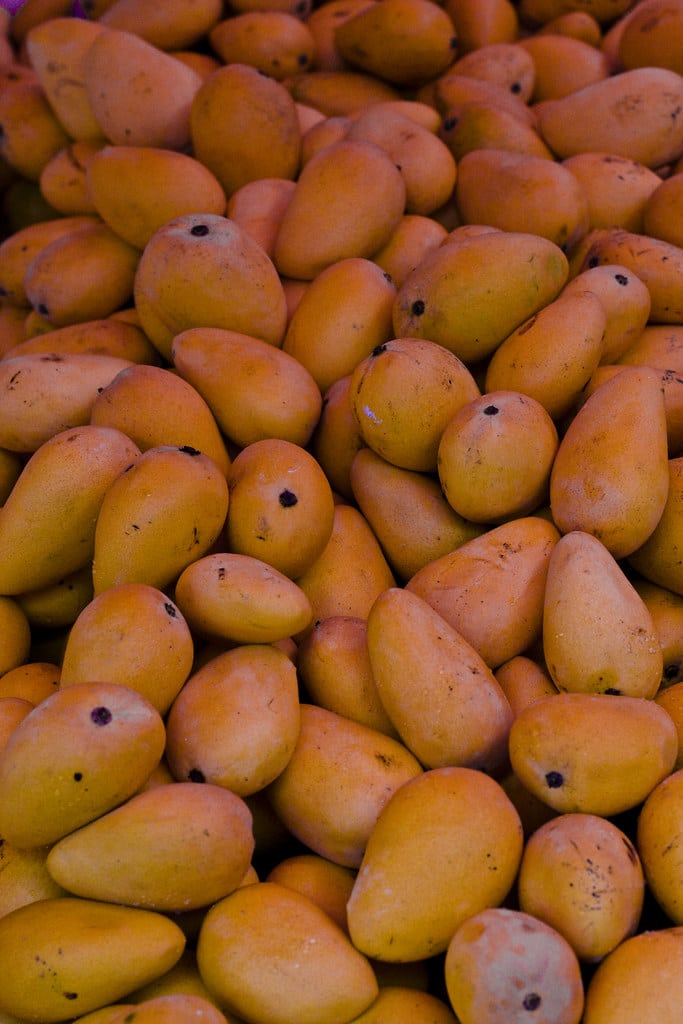
Mangos are a tasty tropical fruit that pack a potassium punch. One cup of mango pieces contains about 277 mg of potassium , which is 6% of your daily value.
While mangos don’t have as much potassium as some other fruits, they offer other great benefits.
They’re rich in vitamin C and vitamin A, which help boost your immune system.
Mangos are versatile and easy to add to your diet. You can eat them fresh, add them to smoothies, or use them in salads.
Their sweet flavor makes them a hit in both savory and sweet dishes.
Here are some quick mango facts:
- 1 cup of mango has about 100 calories
- Mangos are low in fat and high in fiber
- They contain over 20 different vitamins and minerals
When choosing a mango, pick one that gives slightly when squeezed. This means it’s ripe and ready to eat. If it’s too firm, let it ripen on your counter for a few days.
Remember, while mangos are nutritious , they’re not the highest potassium fruit.
But they’re still a good choice if you’re looking to up your potassium intake in a tasty way.
Pomegranates
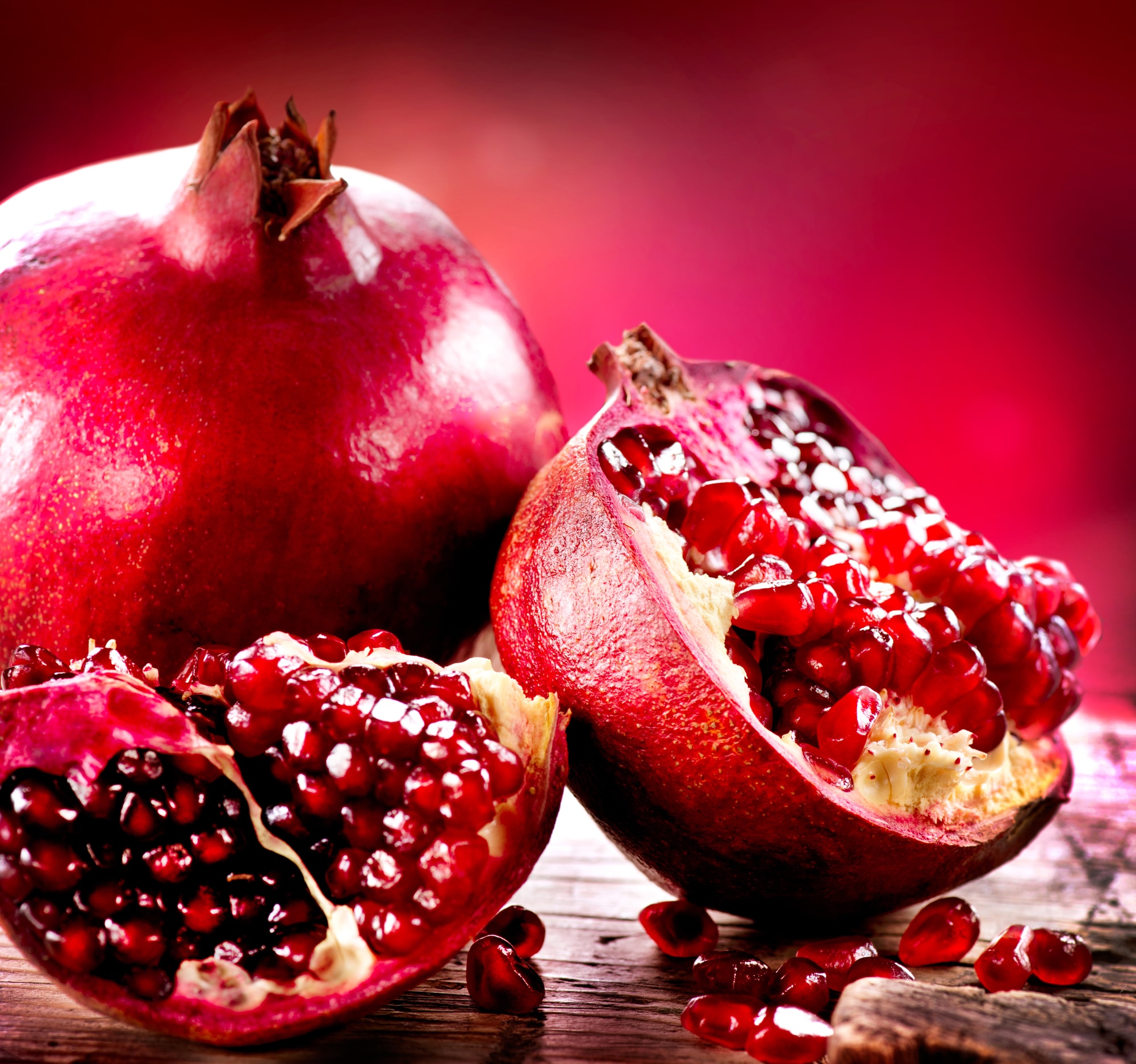
Pomegranates are a tasty fruit that can help boost your potassium intake. These round, red fruits are packed with juicy seeds called arils.
A whole pomegranate contains 666 mg of potassium . That’s about 14% of the daily recommended amount for adults.
But pomegranates offer more than just potassium. They’re low in calories and high in other nutrients too. You’ll get a good dose of vitamin K when you eat them.
Eating pomegranates may have some health perks. They contain compounds that fight inflammation in your body. This could help lower your risk of certain diseases.
Not sure how much to eat? One cup of pomegranate arils provides 410.6 mg of potassium . That’s a good amount to aim for in a serving.
You can enjoy pomegranate arils on their own or add them to salads and desserts. They give a nice crunch and burst of flavor to many dishes.
Remember, getting enough potassium is important for your health. It helps manage blood pressure and supports heart and muscle function.
So why not add some pomegranate to your diet?
Cherries
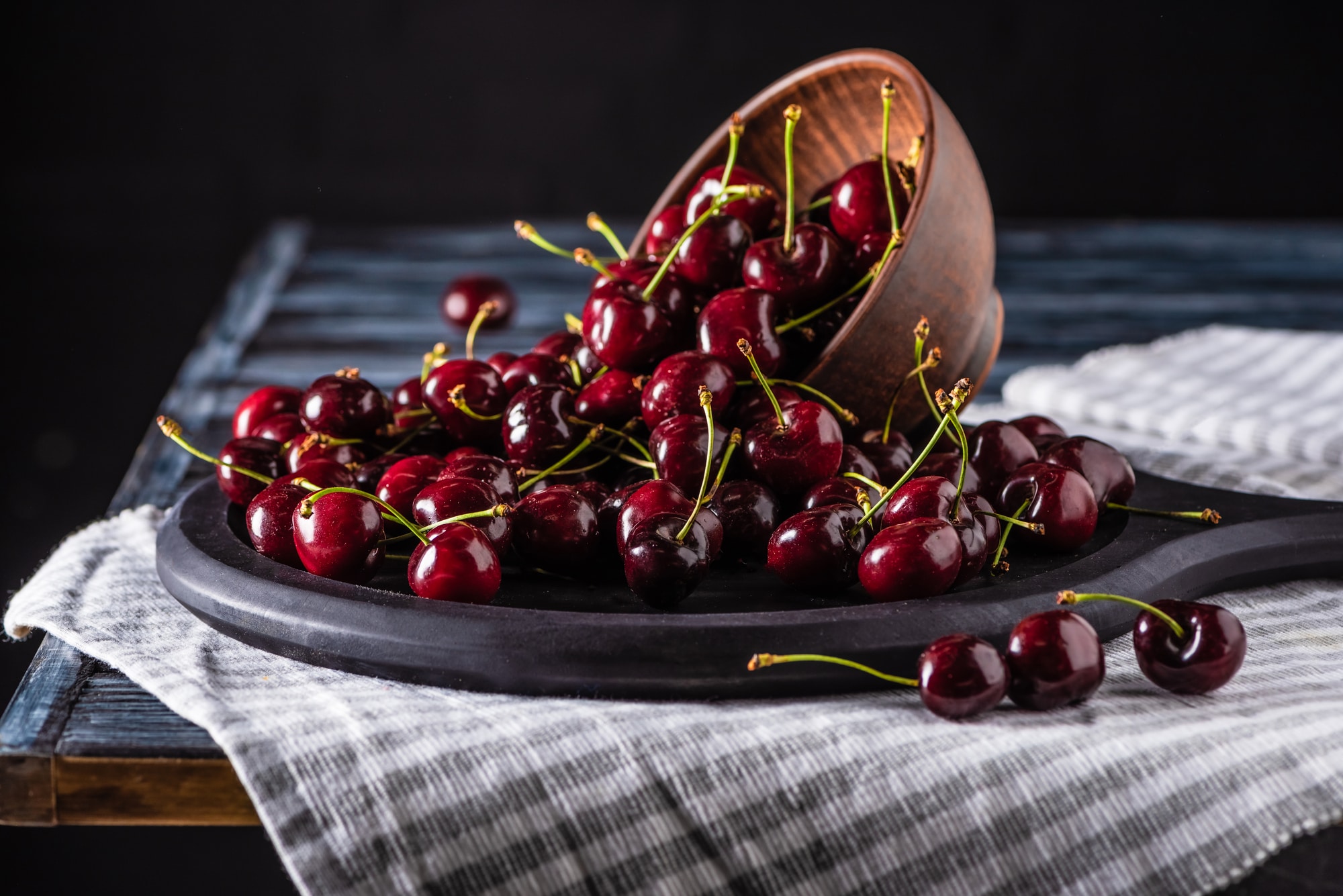
Did you know cherries pack a potassium punch? These small, sweet fruits are a tasty way to boost your potassium intake.
A cup of sweet cherries gives you 342mg of potassium . That’s about 7% of what you need each day.
Cherries come in different types:
- Sweet cherries
- Tart cherries
- Rainier cherries
Sweet cherries are great for snacking. Tart cherries work well in pies and jams. Rainier cherries have a unique yellow-red color and mild flavor.
Besides potassium, cherries offer other benefits:
- High in vitamin C
- Rich in antioxidants
- May help reduce inflammation
You can enjoy cherries in many ways:
- Eat them fresh
- Add to yogurt or oatmeal
- Use in smoothies
- Bake into desserts
Frozen cherries are a good option when fresh ones aren’t in season. They keep their nutrients and are perfect for smoothies.
Remember, while cherries are healthy, they also contain natural sugars. Enjoy them as part of a balanced diet for the best results.
Grapefruits
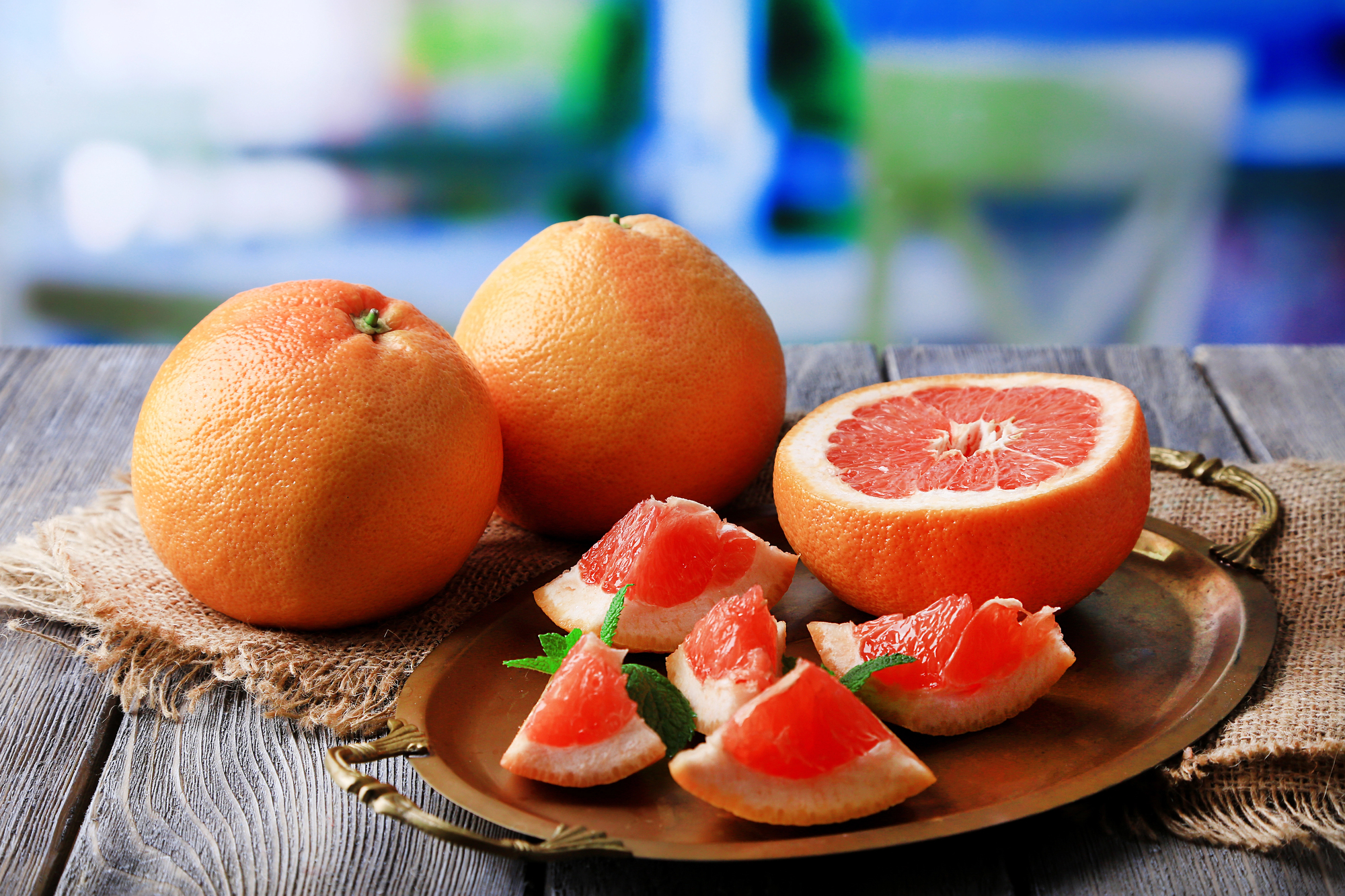
Grapefruits are a great source of potassium. They can help you boost your intake of this important mineral.
A single cup of grapefruit sections contains about 310 mg of potassium .
This citrus fruit comes in different varieties. You can find pink, red, and white grapefruits. All of them offer similar potassium content.
Eating grapefruit is easy and refreshing. You can enjoy it:
- As a snack on its own
- In a fruit salad
- Juiced for a tangy drink
Grapefruits aren’t just good for potassium. They’re also packed with vitamin C and fiber.
These nutrients support your immune system and digestive health.
If you’re looking for a low-calorie option, grapefruit is a great choice. It’s mostly water, which makes it hydrating and light.
Remember, some medications can interact with grapefruit. Check with your doctor if you’re unsure about eating it regularly.
Try adding grapefruit to your breakfast or as an afternoon pick-me-up. Its tart flavor can wake up your taste buds and give you a potassium boost at the same time.
Pineapples
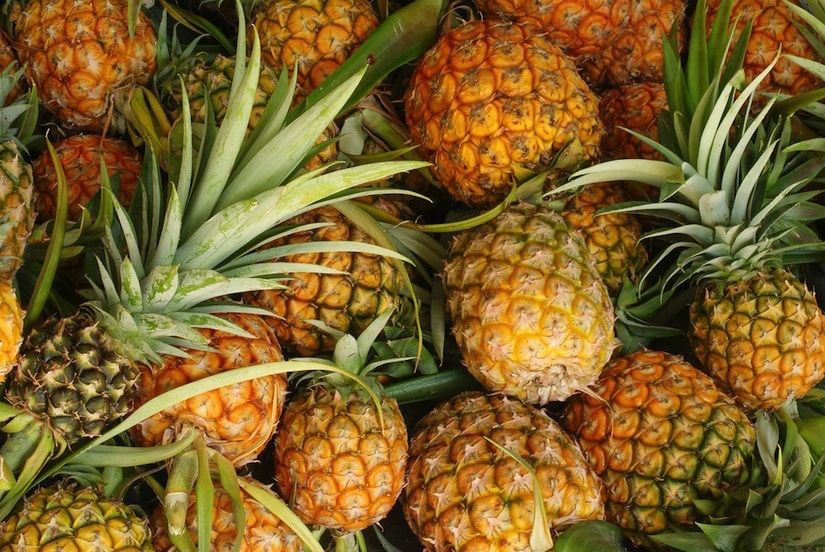
Did you know pineapples contain potassium? This tropical fruit is a tasty way to boost your potassium intake.
A 1-cup serving of raw pineapple chunks gives you 180 milligrams of potassium .
That’s about 3.8% of what you need each day. While it’s not as high as some other fruits, pineapples still contribute to your daily potassium goals.
Here are some fun ways to enjoy pineapple:
- Add it to smoothies
- Grill it for a sweet side dish
- Use it in fruit salads
- Top your yogurt with pineapple chunks
Pineapple juice is another option. A 4-ounce serving of pineapple juice is low in potassium , making it a good choice if you’re watching your intake.
Remember, fresh pineapple is always best. It has more nutrients and less sugar than canned varieties.
When choosing a pineapple, look for one that smells sweet at the base and has green, fresh-looking leaves.
Strawberries

Strawberries are a tasty fruit that can help you boost your potassium intake.
These bright red berries are not only sweet and juicy but also pack a nutritional punch.
While strawberries aren’t as high in potassium as some other fruits, they still offer a decent amount.
A cup of sliced strawberries provides about 220 mg of potassium.
Strawberries are also an excellent source of vitamin C and manganese .
This makes them a great choice for supporting your overall health.
You can easily add strawberries to your diet in many ways:
- Eat them fresh as a snack
- Add them to your morning cereal or oatmeal
- Blend them into smoothies
- Top your yogurt or salads with sliced strawberries
If you’re watching your potassium intake due to kidney issues, don’t worry. Strawberries are actually considered a low-potassium fruit . This means you can enjoy them even if you need to limit your potassium consumption.
Remember, serving size matters. Stick to about 1 cup of strawberries per day to keep your potassium levels in check while still enjoying their benefits.
Figs
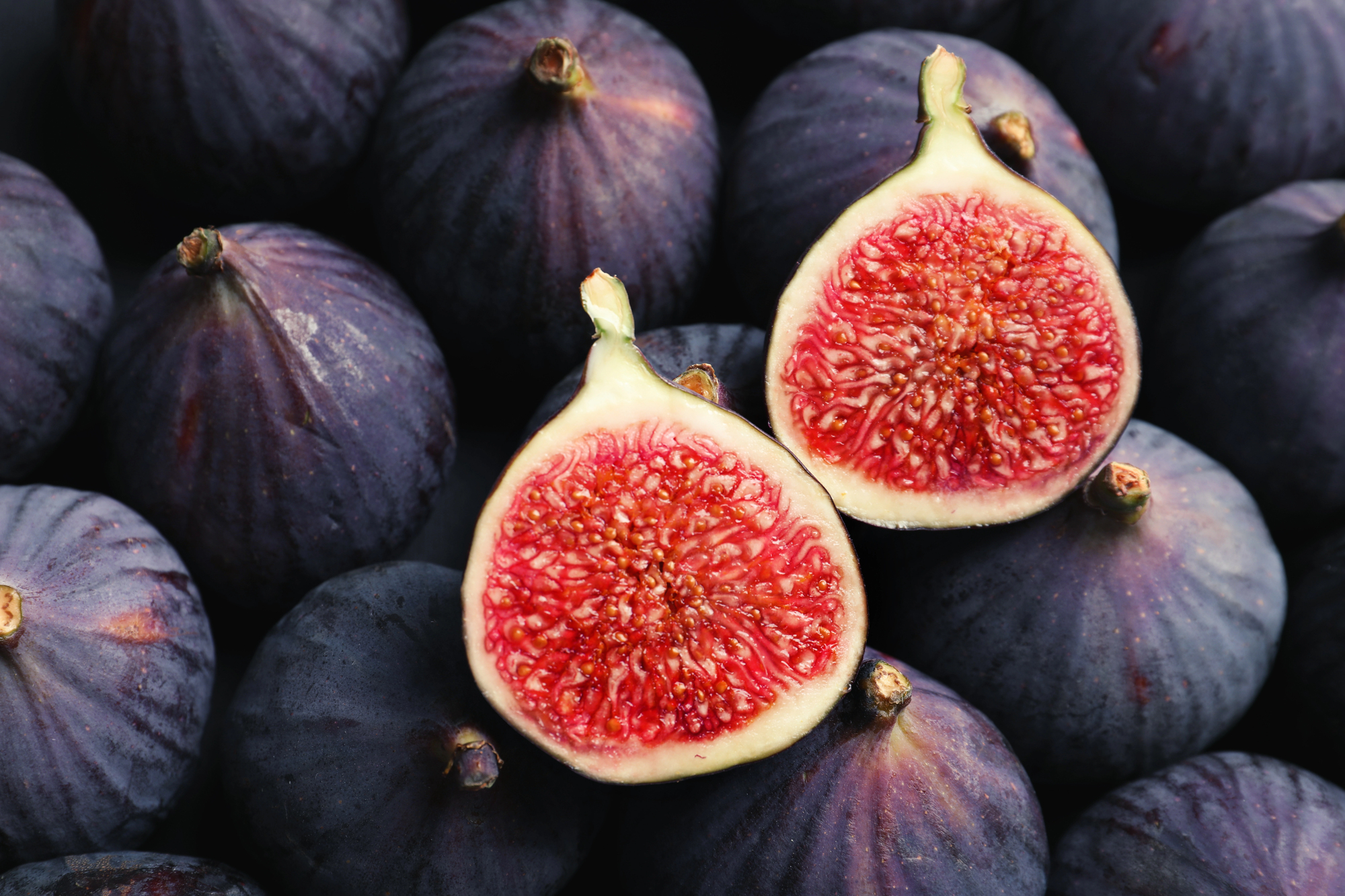
Figs are a sweet and chewy fruit that pack a potassium punch. You might be surprised to learn that both fresh and dried figs are great sources of this important mineral.
Fresh figs contain a good amount of potassium, but dried figs really shine in this department.
When you eat dried figs, you’re getting a potassium powerhouse . Just a small serving of dried figs can give you a significant boost of this nutrient.
Here’s a quick breakdown of potassium content in figs:
- Fresh figs: Moderate potassium content
- Dried figs: High potassium content
Did you know that 100g of dried figs contains 680mg of potassium ? That’s a lot of bang for your buck when it comes to this essential mineral.
Figs are versatile too. You can enjoy them as a snack, add them to salads, or use them in baking.
Their natural sweetness makes them a tasty way to up your potassium intake.
Remember, while figs are nutritious, they’re also high in natural sugars. If you’re watching your sugar intake, enjoy them in moderation as part of a balanced diet.
Guavas
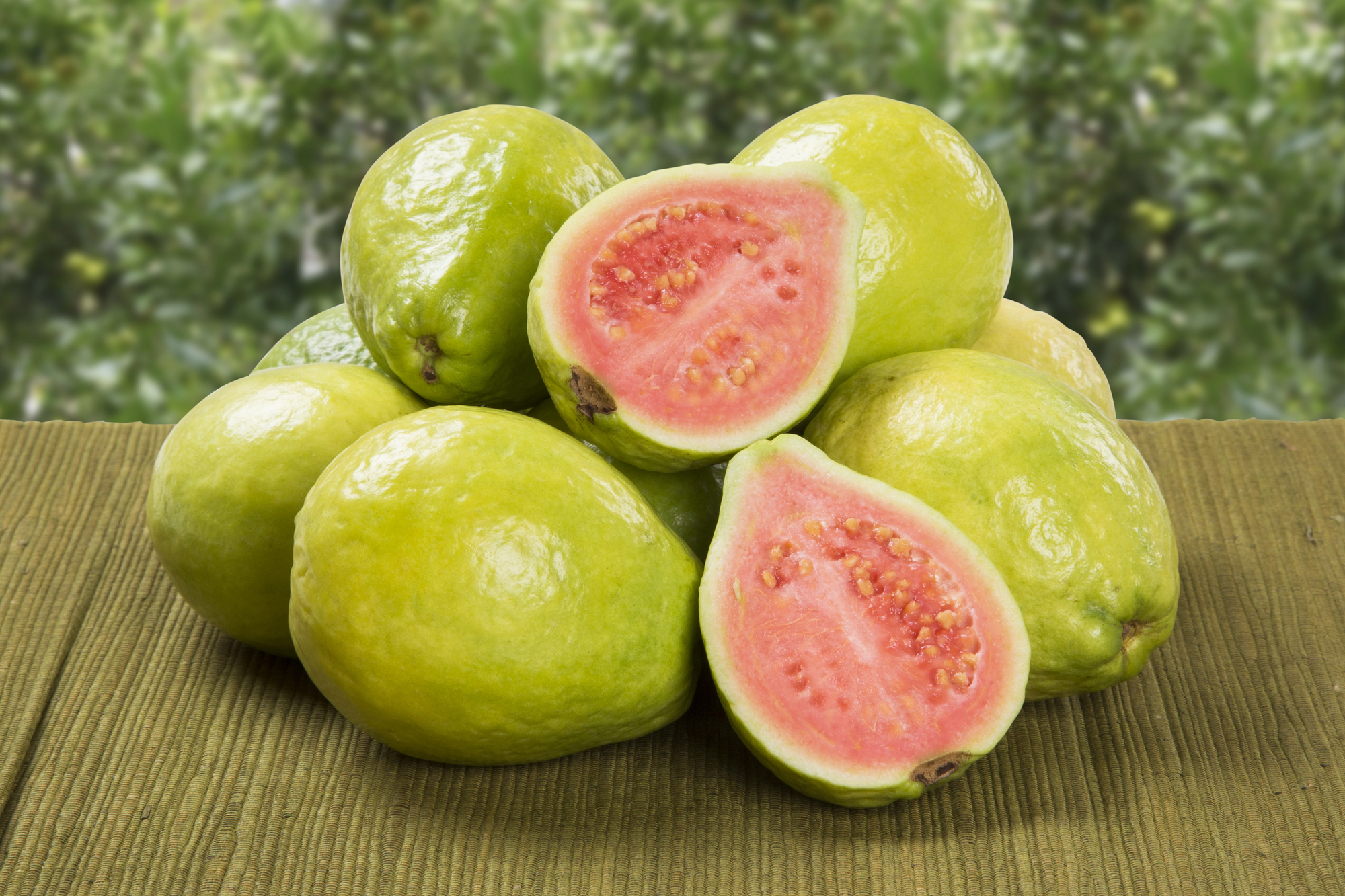
Guavas are a tasty tropical fruit that pack a powerful potassium punch.
You might be surprised to learn that guavas actually contain more potassium than bananas!
A single cup of guava provides 688 mg of potassium . That’s about 15% of your daily needs. Pretty impressive for such a small fruit!
But potassium isn’t the only nutrient guavas have going for them. These little powerhouses are also loaded with vitamin C.
In fact, guavas are one of the best dietary sources of vitamin C you can find.
What does all this mean for your health? Eating guavas might help:
- Lower your blood pressure
- Support your heart health
- Boost your immune system
- Improve iron absorption
You can enjoy guavas in many ways. Eat them fresh, add them to smoothies, or use them in jams and desserts.
Their sweet-tart flavor makes them a versatile ingredient in both sweet and savory dishes.
Next time you’re at the grocery store, why not pick up some guavas? Your taste buds and your body will thank you!
Dates
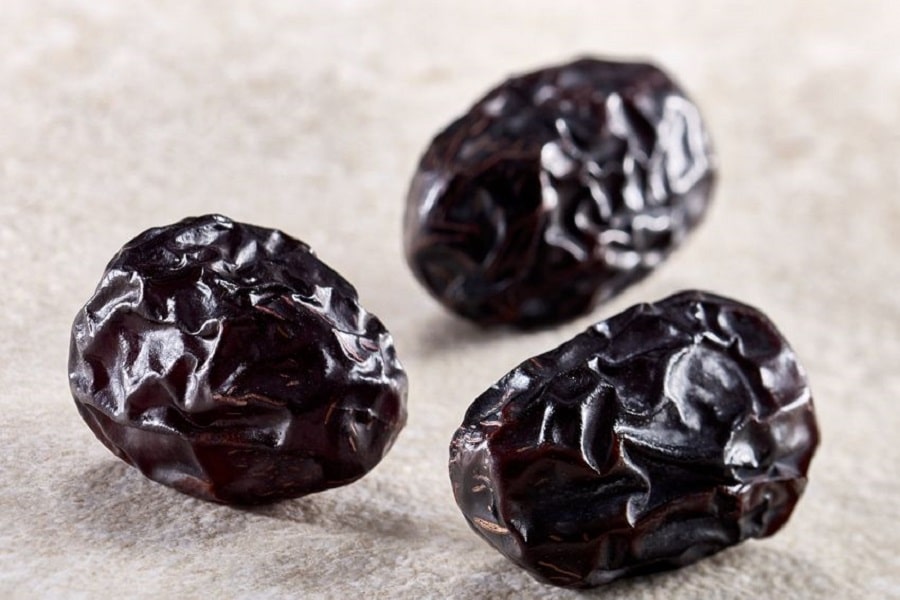
Dates are a sweet fruit that pack a powerful potassium punch. You might be surprised to learn that they contain even more potassium than bananas.
In fact, 100 grams of dates have 656-696 mg of potassium , nearly double the amount in a banana.
These chewy fruits come in different varieties. The two most common types you’ll find are Medjool and Deglet Noor.
Both are excellent sources of potassium, but they differ slightly in size and taste.
Eating dates can help you meet your daily potassium needs. The current daily value for potassium is 4700 mg.
Adding a few dates to your diet can contribute significantly to this goal.
Besides potassium, dates offer other nutrients too. They’re good sources of magnesium and iron . These minerals play important roles in your body’s functions.
You can enjoy dates in many ways:
- Eat them as a quick snack
- Add them to smoothies
- Use them in baking as a natural sweetener
- Stuff them with nuts for a delicious treat
Remember, while dates are nutritious, they’re also high in natural sugars. Enjoy them in moderation as part of a balanced diet.
Peaches

Peaches are a tasty summer fruit that can help you get more potassium in your diet. They have a sweet flavor and juicy texture that many people love.
A medium-sized peach contains about 285 mg of potassium. This is about 6% of the daily value for this important mineral.
While not as high as some other fruits, peaches still provide a good amount.
You can eat peaches in many ways:
- Fresh and raw
- Sliced on cereal or yogurt
- Grilled as a side dish
- Baked into desserts
Canned peaches have slightly less potassium than fresh ones. One cup of canned peaches has 209 mg of potassium .
If you choose canned, look for ones packed in water instead of syrup to keep the sugar content lower.
Dried peaches pack more potassium into a smaller serving. Just 1 ounce (about 2 halves) provides 283 mg. This makes them a great portable snack option.
Keep in mind that peaches are considered a medium potassium fruit. If you need to limit potassium intake, talk to your doctor about how many you can safely eat.
Nectarines
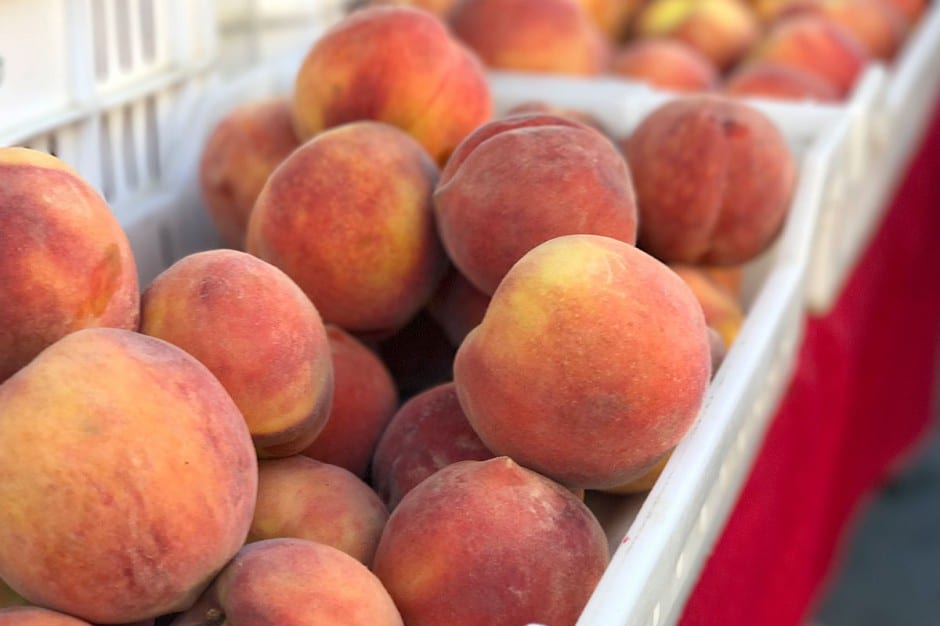
Nectarines are a tasty fruit that can help you get more potassium in your diet.
A medium-sized nectarine gives you about 285 mg of potassium , which is 6% of what you need each day.
These smooth-skinned fruits are related to peaches. They’re juicy and sweet, making them a yummy snack or addition to your meals.
Nectarines don’t have as much potassium as some other fruits. But they’re still a good choice when you want to eat more potassium-rich foods .
Here’s a quick look at how nectarines stack up:
- Potassium per cup: 287 mg
- Potassium per 100g: 201 mg
- Potassium per 200 calories: 914 mg
Beyond potassium, nectarines offer other good stuff for your body. They have vitamins A and C, which help keep your eyes and immune system healthy.
You can enjoy nectarines in many ways. Eat them fresh, add slices to your yogurt, or bake them in a pie. They’re versatile and can fit into lots of recipes.
Remember, while nectarines are great, other fruits like bananas, guavas, and dried fruits pack even more potassium. Mix it up to get the most benefits!
Raisins
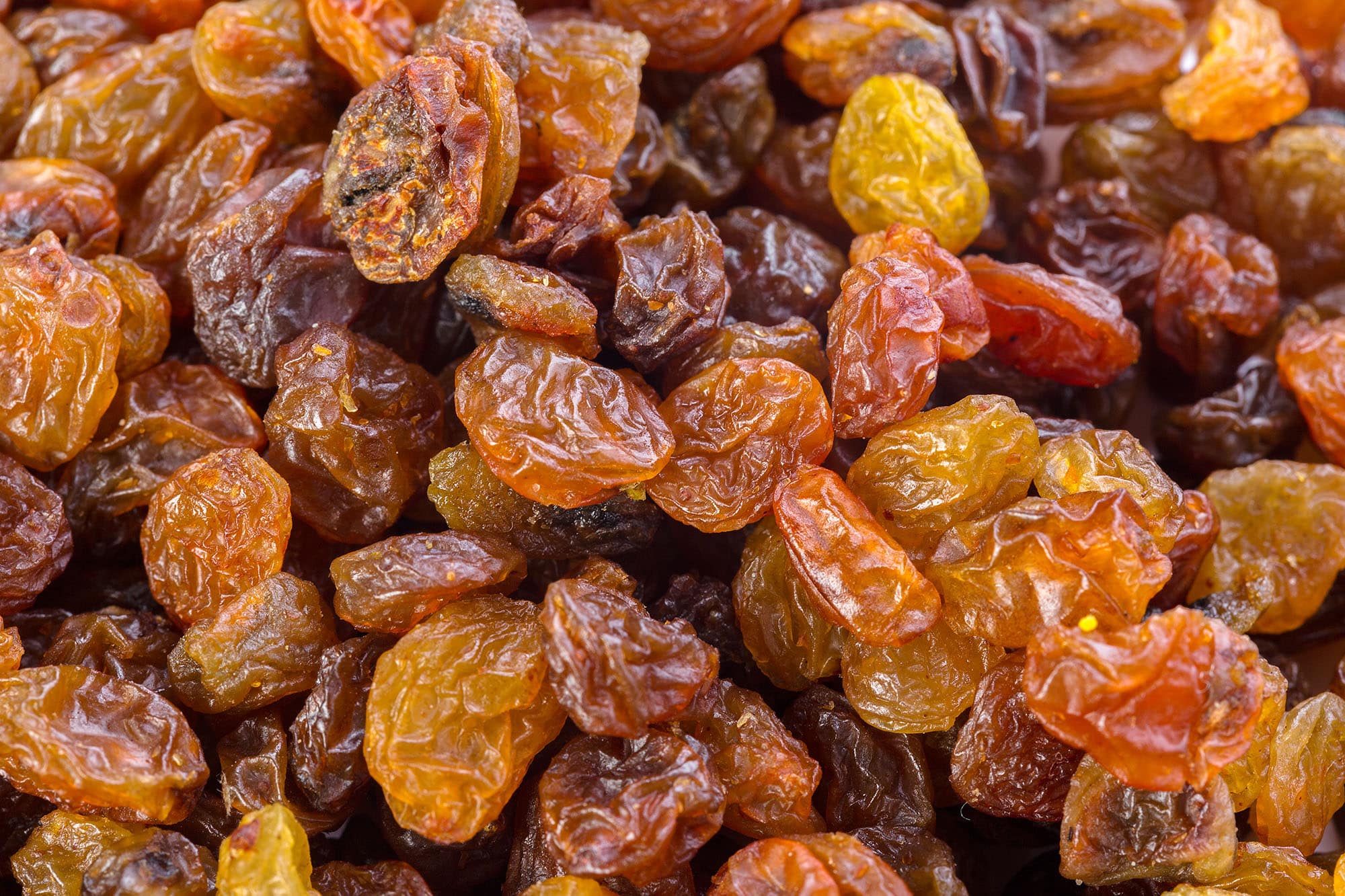
Raisins are a tasty and convenient snack packed with potassium. These dried grapes offer a quick way to boost your potassium intake.
Did you know that raisins contain more potassium than fresh grapes ? This is because the drying process concentrates the nutrients.
A small handful of raisins (about 1/4 cup) provides:
- 310 mg of potassium
- 108 calories
- 1 gram of protein
- 29 grams of carbohydrates
You can easily add raisins to your diet in many ways:
- Sprinkle them on cereal or oatmeal
- Mix them into yogurt
- Add them to trail mix
- Bake them into muffins or cookies
Keep in mind that raisins are high in natural sugars. If you’re watching your sugar intake, enjoy them in moderation.
Raisins offer a quick and easy way to increase your potassium levels. They’re perfect for on-the-go snacking or as a natural sweetener in recipes.
Remember to pair raisins with other potassium-rich foods for a well-rounded diet. Your body will thank you for the extra nutrients!



